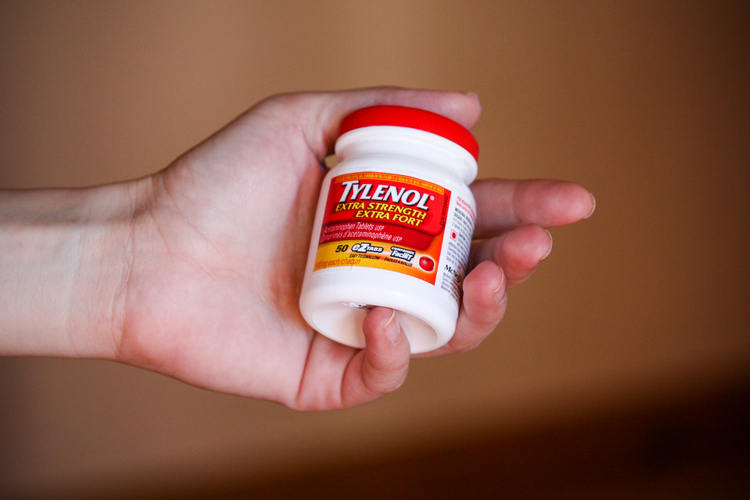7 of the Biggest Product Recalls in U.S. History
The mere thought of issuing a large-scale product recall is enough to bring any manufacturer out in a cold sweat.
When an organization is forced to retrieve a line of defective products, they must shoulder the cost of reverse logistics, repairing and replacing the goods, or reimbursing their customers. Depending on the scale of the recall (and subsequent supply chain delays), this could result in massive losses and have a lasting impact on a brand’s reputation.
In short, recovering from a product recall is an unenviable (and often insurmountable) challenge — just ask the following organizations that suffered the biggest product recalls in U.S. history.
1. Extra-Strength Tylenol – 1982
Between September and October 1982, seven people in the greater Chicago area died after consuming cyanide-laced Extra-Strength Tylenol. Parent company Johnson & Johnson spent upwards of $100 million recalling 31 million bottles of the painkiller and relaunching the Tylenol brand. The company also put out national warnings urging the public not to take Tylenol, and set-up an advice hotline.
Johnson and Johnson’s efficient and effective response, at a time when product recalls were not the norm, is thought to have set the standard for effective crisis management in the decades that followed. As a result of putting customer safety above profit, the Tylenol brand soon recovered and even regained its former market share.
2. Peanut Corp. of America – 2008
In 2008, Peanut Corp. of America was found to be responsible for a Salmonella outbreak that resulted in hundreds of illnesses and an estimated 12 deaths.
The Salmonella contamination instigated the biggest food recall in U.S. history, impacting 360 companies and close to 4,000 products that used the company’s ingredients.
By February 2009, Peanut Corp. of America faced several lawsuits, had ceased all production, and filed for bankruptcy.
3. Ford’s Firestone Tires – 2000
In August 2000, Firestone recalled 6.5 million tires which had primarily been used on Ford’s Motor Co. Explorers and other Ford Light trucks. One year later, Ford voluntarily recalled a further 13 million Firestone tires at a cost of $3 billion.
The two companies disputed the root cause of the problem. Ford branded the tires unsafe while Firestone claimed the Ford Explorers were to blame, suggesting that Ford had failed to carry out adequate due diligence on its vehicles.
Over time, the defective tires resulted in thousands of complaints and were linked to 800 injuries and 271 fatalities.
4. General Motors’ Ignition Switches – 2014
In early 2014, General Motors announced a recall of 2.6 million small cars due to faulty ignition switches. By the end of the year, the company had recalled a total of 30.1 million vehicles in North America.
The defective switches, which shut off car engines and airbags, have been linked to 97 deaths since 2005. General Motors was heavily criticized over its slow response to the crisis, particularly after evidence emerged that the company knew of the problem as early as 2003.
In May 2014, the U.S. Department of Transportation issued General Motors with a $35 million fine. The company paid $1.7 billion in recall costs in the first six months of 2014 and set aside $550 million to compensate its victims.
5. Merck Vioxx – 2004
In September 2004, pharmaceutical company Merck recalled its arthritis medication Vioxx after a medical trial revealed the drug increased cardiovascular problems, including heart attacks and strokes.
In 2003, the drug had accounted for 11% of Merck’s global sales. The recall caused a $491.6 million loss in revenue and the company losing a third of its market value in 2004.
Merck agreed to pay $4.85 billion in 2007 to settle lawsuits filed against the company in U.S. courts.
6. Keurig’s brewing machines – 2014
In December 2014, coffee machine manufacturer Keurig announced it was recalling 7.2 million units of its Mini Plus Brewing System. The company received 200 reports that water in the machines was overheating and spraying out. This included 90 reports of scald-related injuries.
In 2017, the U.S. Consumer Product Safety Commission announced that Keurig would pay a $5.8 million civil penalty to settle charges over the company’s failure to immediately report a product defect, as required by federal law.
7. Dell’s batteries – 2006
In August 2006, Dell recalled four million of its Sony-manufactured lithium-ion batteries following reports that the component was prone to overheating and posed a serious fire hazard. Dell’s response was considered prompt and thorough, having received the first reports of exploding laptops just one month earlier.
Sony helped shoulder some of the costs associated with the product recall, and both companies committed to doing further research to understand the causes behind the defective batteries. Dell also set up a helpline to provide support for affected customers.
Dell’s battery recall became the largest safety recall in the history of the consumer electronics industry and is estimated to have cost the company $300 million.


